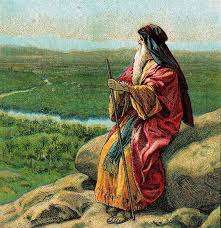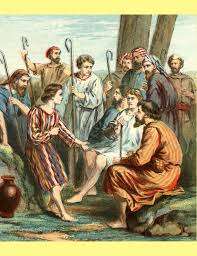

The significance of the Old Testament for the New Testament Church
Pr. Phinni Joseph
One of the significant aspects appeared in modern biblical research is the relationship between the testaments. In fact the issues has been discussed and arrived at different positions. However, the significance of this discussion is not diminished. There are churches and individuals that still doubt/question the relevance of the Old Testament for the New Testament believer. The purpose of this note is to add some considerations that may clarify or contribute to the going discussion on this topic.
The Christian Bible as we understand today includes two sections: The Old Testament and New Testament. The word ‘testament’ means ‘agreement’, ‘last will’ or ‘covenant’. The Old Testament specifically represents the fundamental character or theme of this section, a covenant that Yahweh made with the people of Israel. It is the Sinai Covenant which Yahweh made with people of Israel on Mount Sinai through the hand of Moses. However, in a broader category the first section of the Bible, 39 books is also known as ‘the Old Testament’. So also the ‘New Testament’ points to God’s covenant with humanity through Jesus Christ and in general it refers to the second half of the Bible that contains 27 books.
Both the Protestant and Catholic factions of the Christendom accept these criteria except for the number of Old Testament books (for Catholics Old Testament books are 46). The church traditions accepts one and the same God as the author of the both the testaments.
Both the Protestant and Catholic factions of the Christendom accept these criteria except for the number of Old Testament books (for Catholics Old Testament books are 46). The church traditions accepts one and the same God as the author of the both the testaments. And also the Christian understanding has a basis in Old Testament expectation of the New covenant. (Jer. 31: 31ff.The New Testament describes Old as an authority (Lk.10:25)., as a scripture ( 2 Tim.3:16), Lk.4:27, 24:27). The New Testament speaks of Old Testament as Law and Prophets or Moses and prophets (Mat.7:12; Lk.16:10) or even Moses, Prophets and psalms (Lk.24:44). The characterisation of the Old testament as ‘Law” is open to misunderstanding , so need to be careful about the structure of the Old testament as reflected in Moses, prophets and Psalms. Anyone makes attempt to understand the significance of the relationship between the testaments should take a note of this.
The Old Testament and New Testament relationship:
Some observations
As noted earlier, there are several discussions carried out in relation the interrelatedness of Old Testament and New Testament. There are people who advocates for the complete discontinuity, by a radical denial of the relevance of the Old Testament for the Christians. It is also suggested that a basic structure of promise/fulfilment motive can be seen in relation to both Testaments. To support this view continuity of both testaments is emphasised: The same purpose (relationship to God), the same people (of God) and the same law . Another important point of contact is the typological approach that describes Old Testament persons, institutions and evens are divinely established models or pre-representation of corresponding realities in the New Testament. Jesus used Old Testament as a book that spoke about him. We understand that the Old Testament is a plan of salvation, contains the mystery of Christ, as a law, as history and promise. The history of Israel as seen in the pages of the Old Testament is pedagogical. The Judgment /salvation motives continuously seen throughout the Old Testament culminated in the cross event.
Objections to the Old Testament
We must also see that in contrast to the New Testament motives there are several themes chosen to object the relevance of the Old Testament or its continuity with the New Testament. The Old Testament is criticized for its emphasis on particularism (focus on a particular nation), legalism (emphasis on the legalist approach) and the motive of this-worldliness (the idea of life beyond this planet is vague). It is also pointed out that the Old Testament God is a war God over against the God of Love and forgiveness as posited in the New Testament. However, these outlooks have to be corrected with the help of mature exegesis and relevant interpretations.
The Content of the Old Testament
In order to know the relevance of the Old Testament we need to be aware of the contents of the Old Testament books. The first section of the Christian Bible Old Testament contains four sections (three in Hebrew division): the Pentateuch (The Law), History, Wisdom literature and Prophetic literature. The First section mainly contains the Law codes: Book of the covenant (Ex.20:22-23:33) Deuteronomic Law (Deut.12-26), Holiness Law (Lev.17-25) and priestly Law (Lev.1-16). The history of Israel from the time conquest till the post exilic time is described in the historical books. This section sets the background for the prophetical literature. Each prophetical book should be studied within the historical framework. It contains warnings and predictions of judgment / salvation for Israel based on the response of the people of God to the convent obligations with Yahweh. The poetical wisdom literature contains wisdom, teachings and exhortations for wise living. They are the principles for wise living in various human life situations. Thus, the Old Testament contains not only ‘Law of Moses’, instead the history of the people of God, prophecies (both fulfilled and yet to be fulfilled) and wise teachings that are relevant for all ages.
Relevance of the Old Testament for Christian Church
We can derive several important points on the significance of the Old Testament books for us. Those who accept the Christian message is committed to the interrelatedness of the Testaments, since there are several allusions/ quotes in the New Testament from the Old Testament. It is also noted that the major theological positions of the Christian faith is influenced highly by the Old Testament. For example, the Doctrine of God, doctrine of creation, nature of human being ( humanity as the image of God), human responsibility ( sin and forgiveness), future expectation ( the redeemer ), the major offices of Christ etc. When we understand Bible as a progressive revelation, the New Testament is only completely understood against the background of the Old Testament events, characters, laws and specially the messianic expectation. The Jewish manners and customs that are mentioned in passing in the New Testament cannot be understood without the Old Testament passages. There is a strong approval for Typology that brings two significant aspects: A set of correspondence between objects or actions in both testaments and also and an indication that their interrelatedness is God-willed.
As it is already noted, the Old Testament contains detailed prophecies about the rise and fall of nations and their leaders, the future of the people of God and the fate of this planet. A good number of them came to accurate fulfilment that the skeptics charge they had to have been written after the fact. However, there are several Old Testament prophecies yet to be fulfilled. Old Testament contains numerous lessons through the lives of its characters for our life and practice. The wisdom books contain vast quantities of wisdom that New Testament does not share. It helps us to order our lives that lead to success. Without the Old Testament we would not have a basis for standing against the error of the politically corrupt perversions of our society. There are promises God will yet fulfil to the Jewish nation. If we overlook those promises, we would not properly understand the end time events predicted in the New Testament.
In conclusion, the Old Testament books bring the word of God to all generations. It serves us with the basic doctrinal positions even today. Human depravity and divine salvific program can only be best explained with the help of Old Testament books. The persons, events and institutions as seen in the Old Testament give deeper meaning to the Christ event as seen on the Cross. The New Testament becomes clear only when it is seen as being built upon the foundation of the events, characters, law, sacrificial system, covenants, priesthood and promise in the Old Testament. The fulfilment of prophesies, that authenticate the veracity of the scriptures, still awaits in the pages of the Old Testament books. The divine wisdom as imparted to the holy sages in the past still serves the people of God to lead a meaningful life. Jesus Himself attested this fact by interpreting the things about himself in all the scriptures beginning with Moses and all the prophets (cf. Lk24:27). Jesus gives us a better model to understand the Christ event through the Old Testament Scriptures. Our hearts will burn and we realize that He is the Lord and we will be bold witness to His resurrection.











